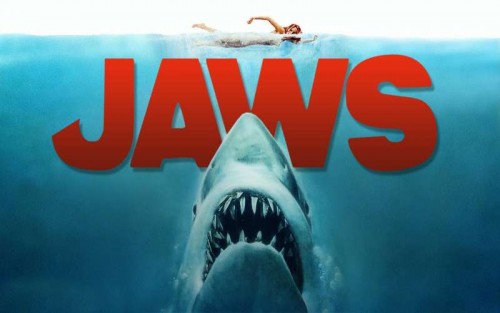 This month brings so many monumental movie anniversaries we’re going to need wait for it a bigger boat to bring them all to you. And the granddaddy of them all, one of the all-time milestones of movie milestones, and the progenitor of the blockbuster world we’ve lived in ever since Jaws turns 40 years old on June 20. And many of us haven’t felt safe enough to go back in the water yet.
This month brings so many monumental movie anniversaries we’re going to need wait for it a bigger boat to bring them all to you. And the granddaddy of them all, one of the all-time milestones of movie milestones, and the progenitor of the blockbuster world we’ve lived in ever since Jaws turns 40 years old on June 20. And many of us haven’t felt safe enough to go back in the water yet.
In 1975 a little-known director named Steven Spielberg unleashed on audiences what was to become the benchmark for big screen summer entertainment. The story about a giant great white shark that terrorizes a New England beach resort set a record at the time for the highest grossing film ever and went on to be nominated for best picture at the Academy Awards. Though it lost that race to “One Flew Over the Cuckoo’s Nest,” “Jaws” won the best music Oscar thanks to composer John Williams’ simple, yet memorably frightening, score.
Based on Peter Benchley’s best-selling novel of the same name, the movie stars Roy Scheider as a water-averse local sheriff, Richard Dreyfus as a marine biologist and Robert Shaw as a weathered seafarer who band together (on a small fishing boat, no less) to rid the island of the human-devouring monster-fish.
Forty years ago Jaws the movie hit the big screen. Cinemas everywhere held audiences in thrall at the thought of an oversized great white shark with bad attitude coming to a beach near you.
“Jaws was a turning point for great white sharks,” says Oliver Crimmen, who’s been the fish curator at the Natural History Museum in London for more than 40 years. “I actually saw a big change happen in the public and scientific perception of sharks when Peter Benchley’s book Jaws was published and then subsequently made into a film.”
The key problem Jaws created was to portray sharks as vengeful creatures. The story revolves around one shark that seems to hold a grudge against particular individuals and goes after them with intent to kill.